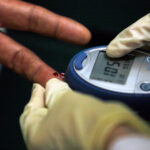Bill Gates was at the International Aids Conference this week. He spent time with five African journalists. Here is what they wanted to know.
- Anna Miti, Zimbabwe Broadcasting Corporation, Zimbabwe: We’ve been hearing a lot about the decrease or “flatlining” of HIV funding, yet we know that more people need treatment now than ever. How do we get around this challenge?
- Bill Gates: Funding won’t go down, even though it probably isn’t going to increase by much. We want to double the number of people on treatment and we have to do that through efficiencies. The drug prices are low enough that this should be possible. It’s possible, even with this funding, to increase the number of people getting treatment.
- Mashaka Mgeta, The Guardian, Tanzania: New infections among young women in Sub–Saharan Africa are increasing at an alarming rate. How do we address infection rates among young women?
- Bill Gates: There are two reasons for that – the risk transmission [per sexual act] is higher male–to–female, than female–to–male and you have some older men who are having sex with younger women. So, in particularly the 15–19 years group, many more girls are infected than boys.
Educating women about protection of various types, like condoms and the oral PrEP [the HIV prevention pill, Truvada] is important. There are lots of organisations that we back [fund] that are focused on work in this area.
- John Muchangi, The Star, Kenya: Should we be concerned that trade agreements between the European Union and India might increase the price of antiretroviral drugs (ARVs)?
- Bill Gates: These agreements have no effect on the price of ARVs. HIV drugs are available at cost. They are today, they always will be. The drugs in the rich countries are very costly because that’s what is paying for the research and development to make these drugs.
However, there are still supply chain challenges. The second line regimes, in case of drug resistance, aren’t as high volume and they are harder to manufacture. Those will be slightly more expensive
- Deusdedit Ruhangariyo, Orumuri Weekly, Uganda: Tuberculosis (TB) is a major cause of morbidity in HIV–infected people, yet the progress to getting new drugs has been slow. What are you doing about this?
- Bill Gates: TB has always been a problem, even before the HIV epidemic came along. We do have a set of drugs that work for TB. There is one thing about TB that makes it far better than HIV: if you do take treatment [of between 6 and 9 months] you’re overwhelmingly cured. With HIV we have no cure.
For drug-resistant TB there is a new drug, bedaquiline. We have a lot of new drugs in the pipeline for TB that will come out over the next 10 years, which will deal with this drug resistant problem.
Vaccines are complex to create. We’re probably further away from a TB vaccine than a HIV vaccine. I think in the next eight to 10 years we will get a HIV vaccine.
- Mia Malan, Bhekisisa/Mail & Guardian, South Africa: What role does the way journalists portray people in Africa play? Do we tell the right stories and what are the good stories we can tell to help prevention efforts?
- Bill Gates: It’s rational for somebody to protect themselves and yet talking about sex and risk is not an easy thing. Getting people to talk openly about their HIV status, whether they engage in risky practices, or how they can change their behaviour is a very tough thing to do.
Some readers are in the elite who need to set policies and allocate resources, and it is important to remind them about the nature of this thing [epidemic] that they may not be seeing every day. That is why we think having the press engage in this topic is very important.
A lot of your influence will be indirect. A lot of these women or young boys we want to protect are not direct readers, but the people who organise around them or set the policies that affect them certainly are.
Ina Skosana was a health reporter at Bhekisisa.





